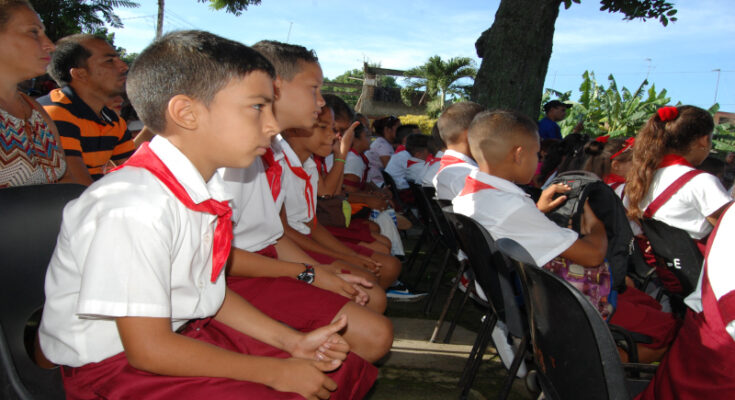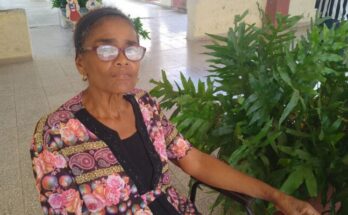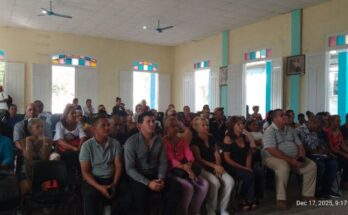The Cuban Revolution, since its triumph on January 1, 1959, began with the fulfillment of the priorities established years ago by Fidel Castro in the Moncada Program. The education in Cuba is one of these priorities and today the progress made by our country in this field is a palpable reality.
In Cuba, education is also the result of the great effort made to cover basic needs, both material and spiritual, in a panorama that has been undermined and hindered by the US blockade that has been in place for more than 60 years now. The impact of the measures implemented by the United States considerably damages the performance of educators and limits to a great extent the learning possibilities of students, who suffer the lack of essential materials for the proper development of the teaching and educational process.
In this sense, the initiatives or inventiveness of teachers and professors to overcome these difficulties stand out and our schools today, in the midst of the blockade, present an educational system without pauses and with materials made mostly in a handmade way, with the heart in each teaching aid.
The struggle of Cuban teachers is hard, as they are torn between a suffocating economic situation also derived from the blockade, which many try to minimize or hide, and the fulfillment of their most sacred duty: the teaching of the professionals of the future.
For students, the situation is no less complex, marked by demotivating shortages, overwhelming needs, a critical situation with the electric power supply that slows down independent study and normal educational processes, are some of the aggravating factors they face today. Even so, education goes on, under strong criticism from those who try to undermine the process, with threats and restrictions. The process continues because the nation having its children better educated will always be free.




